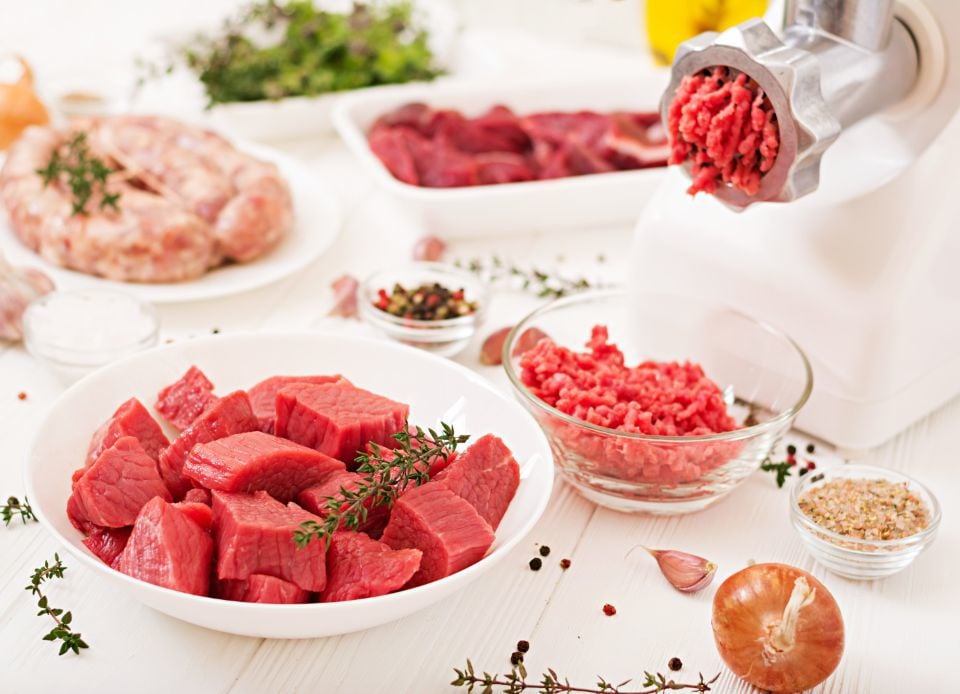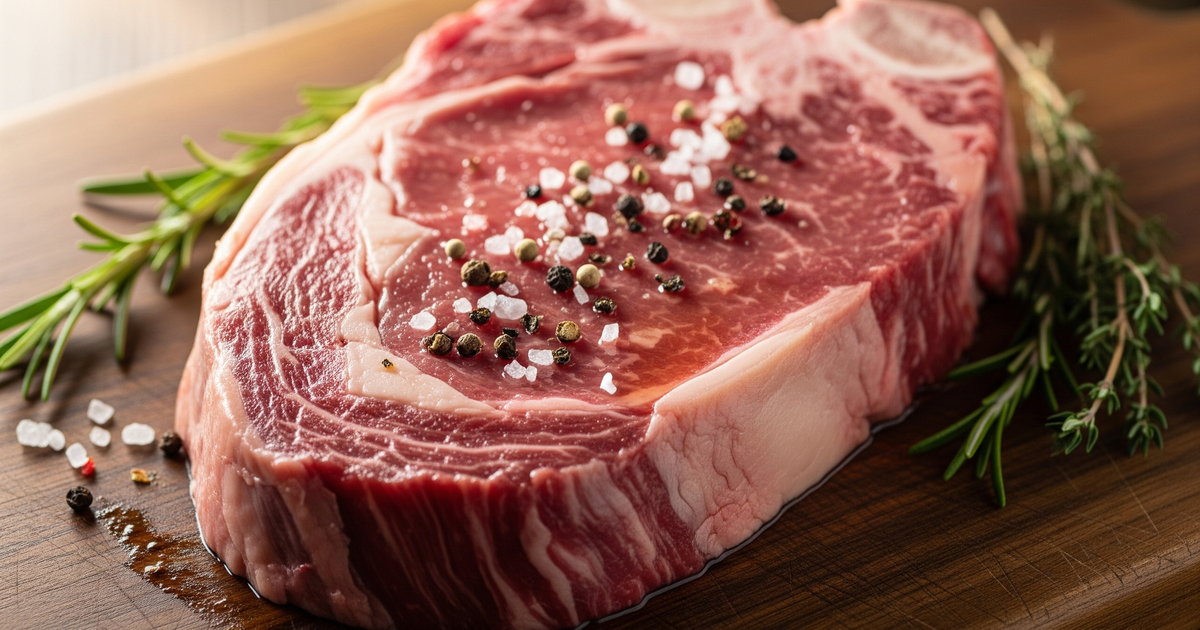Increases the risk of cardiovascular disease
Red meat is high in saturated fat, which can increase bad cholesterol (LDL) levels in your blood and put you at risk for heart disease.
High cholesterol levels can lead to plaque buildup and atherosclerosis, a condition in which plaque in the arteries becomes stiffer, which can lead to increased cardiovascular events such as heart attacks and strokes. Processed meats are often high in salt, which also contributes to high blood pressure and cardiovascular risk.

Increased risk of cancer
Many studies have shown a link between high consumption of red meat, especially processed meat, and an increased risk of colorectal cancer. The process of cooking meat (smoking, grilling, frying) can create carcinogenic compounds.
The International Agency for Research on Cancer (IARC) classifies red meat as a Group 2A carcinogen, which is described as “probably carcinogenic to humans.” However, the agency says that because the classification of red meat as a Group 2A carcinogen is based on limited evidence, other factors should be taken into account when deciding whether to eat red meat.
Increased risk of gout
Red meat is high in purine, a substance that can be converted into uric acid in the body. High uric acid can cause severe joint pain in people with gout.
Causes digestive problems
Red meat is harder to digest than white meat or fish. Consuming too much red meat can cause digestive problems such as constipation and indigestion.
Effects on kidney health
Red meat is high in protein, which can put pressure on the kidneys. People with kidney disease should limit protein to protect kidney function.
How much red meat should you eat per day?
In addition to the harmful effects of red meat mentioned above, red meat is a rich source of iron. Iron is an important mineral, especially in subjects such as teenagers, children and women of childbearing age, who often have iron deficiency. Heme iron in red meat is easily absorbed by the human body. In addition, red meat is also a rich source of vitamin B12 and zinc.
Furthermore, red meat, especially beef, provides a large amount of protein and many other nutrients. A 3-ounce serving of lean beef not only provides 180 calories but also contains more than 10 different nutrients.
Red meat is an important source of nutrients and the most important thing is how each individual integrates it into their daily diet. According to guidelines from the American Institute for Cancer Research, weekly consumption should not exceed 18 ounces (~ 510.29g) of cooked red meat, while avoiding processed meats such as cold cuts, sausages, and bacon to reduce the risk of colon cancer. A balanced diet with about 5 to 6.5 ounces (~ 141.75 - 184.27g) of protein per day from a variety of sources such as seafood, lean meats, and nuts is also recommended to ensure nutritional diversity and maintain health.
Source: https://kinhtedothi.vn/tieu-thu-nhieu-thit-do-khien-co-the-gap-nguy-co-gi.html



![[Photo] President Luong Cuong receives delegation of the Youth Committee of the Liberal Democratic Party of Japan](https://vstatic.vietnam.vn/vietnam/resource/IMAGE/2025/8/22/2632d7f5cf4f4a8e90ce5f5e1989194a)
![[Photo] Prime Minister Pham Minh Chinh chairs the conference to review the 2024-2025 school year and deploy tasks for the 2025-2026 school year.](https://vstatic.vietnam.vn/vietnam/resource/IMAGE/2025/8/22/2ca5ed79ce6a46a1ac7706a42cefafae)





































































































Comment (0)